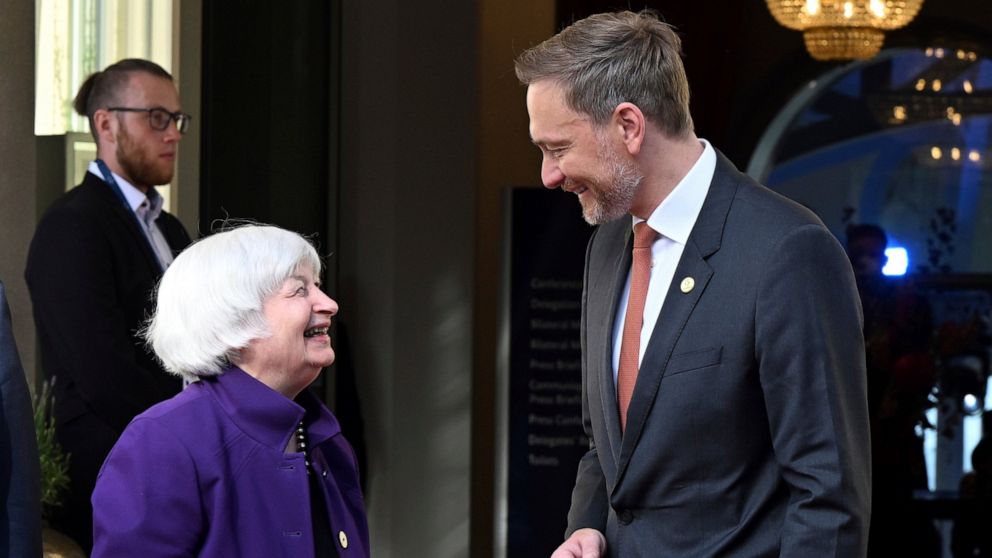Russia-Ukraine war impact draws focus of G7 finance leaders
Finance ministers for the Group of Seven leading economies on Thursday will deal with the immediate effects of Russia’s war in Ukraine and the COVID-19 pandemic, overtaking their more ambitious plans to reform the global economy
KOENIGSWINTER, Germany — Finance ministers for the Group of Seven leading economies on Thursday will work to deal with the immediate effects of Russia’s war in Ukraine and the COVID-19 pandemic, overtaking their more ambitious plans to reform the global economy.
A refugee crisis, high inflation, food insecurity exacerbated by the war and climate change, and the ramifications of a multiyear pandemic are just a few issues drawing leaders’ attention.
German Finance Minister Christian Lindner, the meeting’s host, said he’s hopeful the world’s leading democracies can agree on further funding for Ukraine as it defends itself against Russia.
Lindner told reporters ahead of the G-7 finance ministers meeting in Koenigswinter, Germany, that Ukraine will likely need “a number of double-digit billion euros” over the coming months.
Later in the day, Lindner said the finance ministers and central bank chiefs heard a virtual address by Ukraine’s prime minister and were in discussions with the country’s finance minister, who was participating by video link.
“We are currently collecting the various pledges for direct liquidity help,” Lindner told reporters.
He said Germany pledged 1 billion euros in grants and expects “further progress” during the meeting.
The officials were also discussing other topics, such as soaring consumer prices.
“Clear decisions are necessary in order not to let inflation become a long-term detrimental phenomenon, and so that we succeed in overcoming it very quickly,” Lindner said.
Food insecurity also has been a major topic even before the meeting began. The U.S., several global development banks and other groups rolled out a multibillion-dollar plan Wednesday to address the danger facing an increasingly fragile world economy.
Russia’s invasion of Ukraine has produced a sharp increase in food and energy prices that is contributing to a slowdown in growth and threatening global stagflation — when inflation and unemployment are high and economic output is low.
The two countries are huge exporters of wheat, barley and sunflower oil, with interrupted food and fertilizer supplies raising already high prices and threatening food insecurity in Africa, the Middle East and parts of Asia.
U.S. Treasury Secretary Janet Yellen said Wednesday that “the economic outlook globally is challenging and uncertain” and that “higher food and energy prices are having stagflationary effects, namely depressing output and spending and raising inflation all around the world.”
Finance ministers also plan to talk about efforts to get China to ease debt pressure on poor countries it has loaned money to.
“The situation of the low-income states poses a risk for global food security and the stability of the international financial system,” Lindner said.
“I remind China of its responsibility for this security situation,” he added. “We need more transparency when it comes to global debt issues and for sure, this is a topic of this meeting too.”
———
Jordans reported from Berlin. AP writer Geir Moulson in Berlin contributed.
![]()


